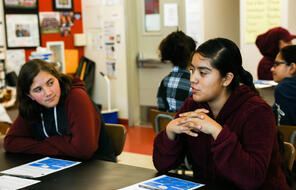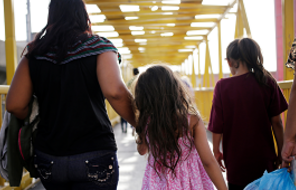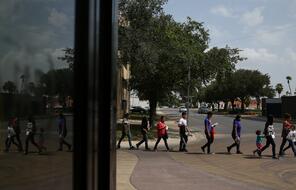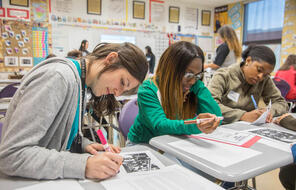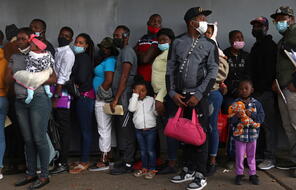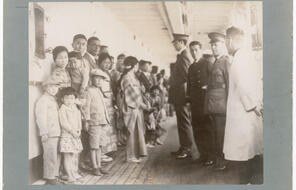
Use Poetry To Teach About Identity
At a Glance
Language
English — USSubject
- English & Language Arts
Grade
6–12- Global Migration & Immigration
Overview
About This Mini-Lesson
In 1996, the Academy of American Poets designated April as National Poetry Month, a time when schools, libraries, poets, writers, and publishers could come together in a nationwide celebration to honor the legacy of our nation’s and world’s poetry and poets. In the words of the US Poet Laureate Tracy K. Smith, “Poetry is quiet, private, meditative, and rather than summing things up in pat and predictable ways, it surprises and deepens our sense of the ordinary. Poetry tells us that the world is full of wonder, revelation, consolation, and meaning. It reminds us that our inner lives deserve time, space, and attention.” 1
In a Facing History & Ourselves classroom, poetry can help students explore and connect with issues of identity, group membership, and belonging, as well as provide models and inspiration for how they might tell their own stories.
The following mini-lesson provides ways that you and your students can join the National Poetry Month celebration by weaving poetry into your curriculum not just in April, but throughout the year.
- 1Eveline Chao, “Life of the Mind: Q&A: Tracy K. Smith,” Princeton Alumni Weekly, September 13, 2017.
Preparing to Teach
Activities
Activities
Materials and Downloads
Additional Resources
Resources from Other Organizations
Unlimited Access to Learning. More Added Every Month.
Facing History & Ourselves is designed for educators who want to help students explore identity, think critically, grow emotionally, act ethically, and participate in civic life. It’s hard work, so we’ve developed some go-to professional learning opportunities to help you along the way.
Exploring ELA Text Selection with Julia Torres
On-Demand
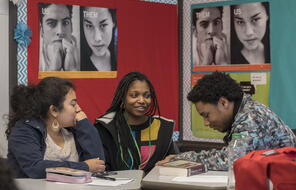
Working for Justice, Equity and Civic Agency in Our Schools: A Conversation with Clint Smith
On-Demand
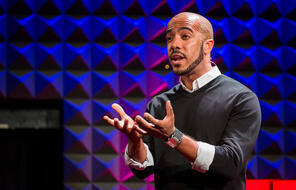
Centering Student Voices to Build Community and Agency
On-Demand




